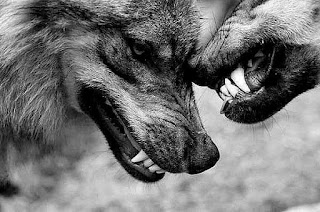As I was pondering what to write today it occured to me that we need stories now more than ever, we need to look back to the old wisdom to remind ourselves that our problems now are not that much different than what they have been. Sure, I know modern media and technology has a huge impact, but humans are still driven by basically the same things.
What follows is a story we could consider now, when we are living in highly divided times. It serves as a reminder that perspective is everything. I hope you find it useful.
A few weeks ago I posted the story of the Two Wolves. Many of you liked it, so I'm going to start posting traditional stories that have modern applications at the end of each month. If nothing else, these stories remind us that the issues we face now are basic human issues, and things we have been struggling with for a long time.
The blind men and the elephant originated in India. Many different versions exist, which seems somehow fitting. I have found this story useful when dealing with multiple points of view, people who are convinced they are more right than anyone else in the room.
Once upon a time there were six blind men who lived in the same village. They worked together and helped each other as best as they could.
On the day that this story takes place they were told an elephant was in the village center. They had no idea what an elephant was, so they decided to go meet it. They each could touch it and learn something about it.
They gathered around the animal and gently reached out their hands.
The first touched the elephant’s leg. “An elephant is like a pillar,” he declared.
"Oh, no! It is like a rope," said the second man who touched the tail.
“Fool! It is like a thick branch of a tree," said the third man who touched the trunk.
“Idiot! It is like a banana leaf,” said the fourth man who touched the ear.
“Are you mad? It is like a huge wall," said the fifth man who touched the flank.
“You are all wrong. It is like a solid pipe," said the sixth man who touched the tusk.
They began to argue and then fight about the nature of the elephant and each one insisted that he was right.
A wise man nearby saw what was happening. He asked, "What is the matter?" They replied, "We cannot agree to what the elephant is like." Each one of them shared their definition of the elephant. The wise man calmly explained to them, "All of you are right. The reason every one of you is telling it differently because each one touched a different part of the elephant. The elephant has all those features. It is strong like a pillar, thin like a rope, thick like a branch, flat like a leaf, huge like a wall and solid like a pipe.”
The blind men each reached out and felt the elephant again (it was a very patient elephant) and understood that they all were right. An elephant, like so many things, can appear to be different depending on how you approach it.
I'm sure you can find applications for this story in both your work and home lives. I'd love to hear how you might use it!
(c)2016 Laura S. Packer












